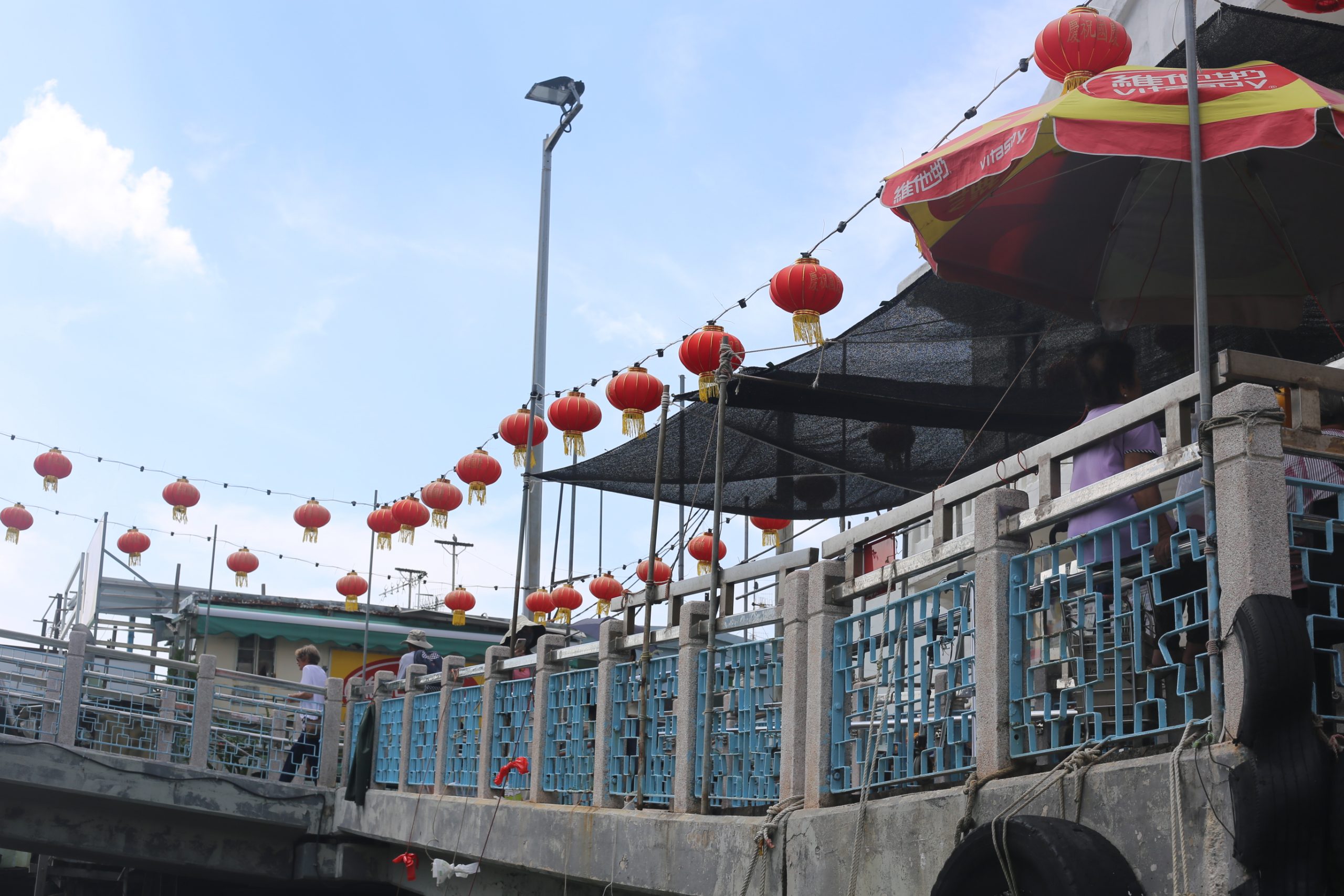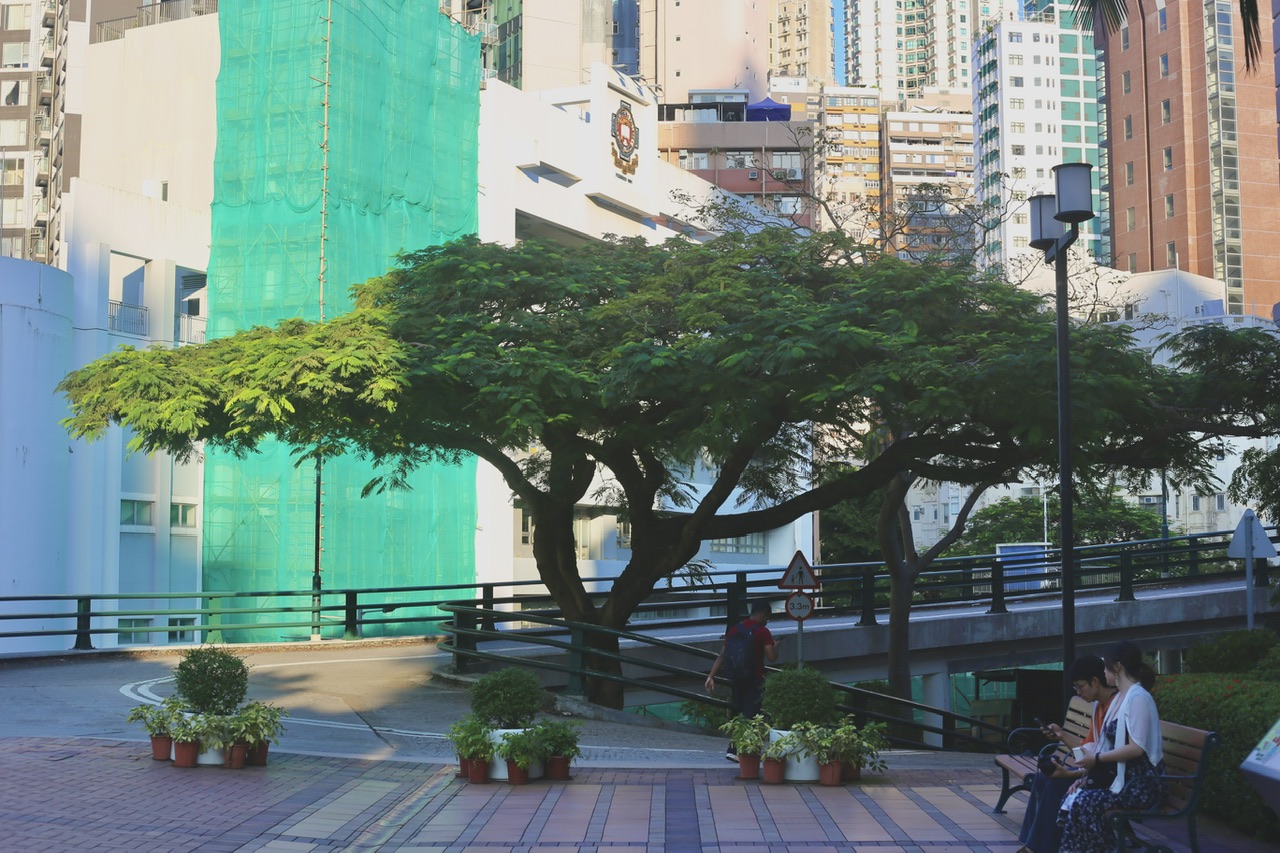Beneath the ropeway cabin my friend Chen and I were riding were thin waterfalls winding through the valleys. Above us were cloudless blue sky allowing sunshine’s uninterrupted brace to the ground. Mindful of the mountains of around 507 meters high above sea level, I recognized how environments shape our way of life, in unconscious ways.
On the day of Mid-autumn Festival, the Po Lin Monastery has been full of visitors and festival decorations. Some bright-colored lanterns hung over the streets greeted the people paying tributes to the sublimely Tian Tan Buddha overlooking the entire Lantau Island.
It has been the very second time that I come here. The memory of my first visit with a friend has become a bit vague now but never faded away as I can still vividly recollect myself climbing the staircase of the monastery with the friend and taking the bus route 21 together heading towards the seaside fishing township of Tai O, whose locals made a living through tourism now with fishing traditions remaining vivid and evident in stilt houses.
This day, my friend Chen and I have been on the same route I had taken in 2018. Bus route 21 is crowed with tourists as usual. Before a big ceremonial wall erected to celebrate the National Day are bus stops where we get off the bus with other tourists speaking different languages.
It appeared that the seaside village’s special charm that existed in my memory has, in a sudden, faded away gradually. We bought some beverages at a local milk tea shop operated by two waiters or managers. One of the women in the shop told us to wait our drinks outside the store. Moucha Milk and Iced Lychee Water were what we had ordered.
At the very hot moment of the day in the afternoon, we bought two boat seat tickets to have a look of the sea around the Tai O village. It turned out to be the first time that I have ever been so close to the South China Sea and Chinese white dolphins whose pinkish fins can occasionally be seen around our small boat. The blond-haired woman who may come from Russia or US shouted out loud in excitement while filming the appearance of the dolphins.
Never once have I imagined to see a dolphin in the sea off the beachless Tai O village. When I asked the black-skinned Cantonese helmsman if there is beach in Tai O, he, motionless and emotionless, did not respond, concentrating his focus on his phone screens.
Apparently awed by the dophins and the bobbing boat, Chen said the boat-riding experience is exciting and unforgettable and worth the price and time we spent. And at some moments when I looked at the seemingly omnipresent ocean afar, I agreed.


